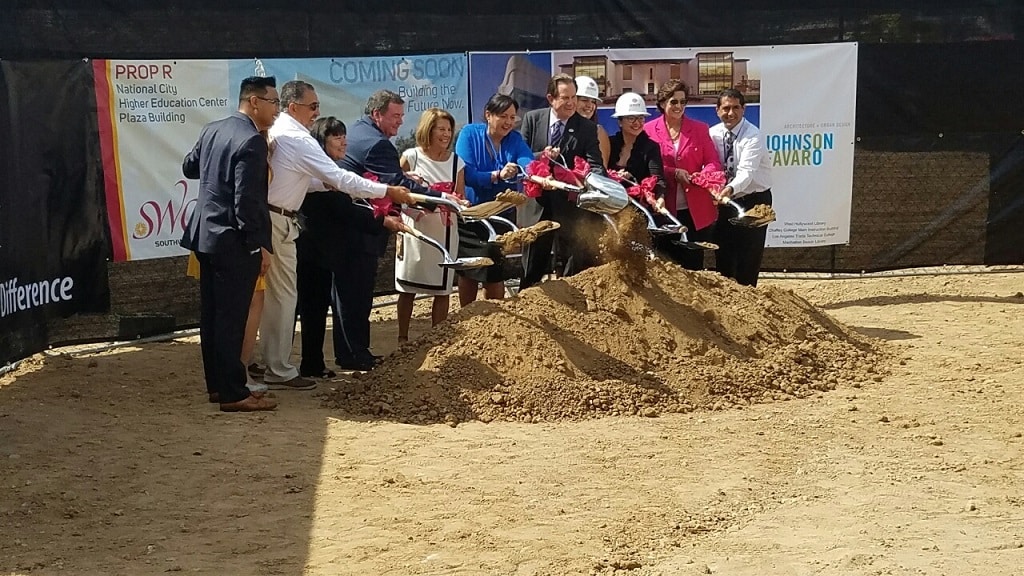
Sometimes the most challenging part of construction work happens underground. A Sundt team ran into just such an issue on a project for Southwestern College and quickly developed a way to climb out of the hole.
While starting utility relocations for a 25,000-square-foot science building on the National City, California campus, we ran across two old storage tanks located 8 to 10 feet below grade. While both were empty, local, state and federal jurisdictions and authorities had to give the clearance before work could proceed.
Since this isn’t the first building to be put up on the site – there have been streets in the area for about 100 years – Sundt Project Superintendent Dan Pierce wasn’t surprised by the discovery.
“You never know what you’re going to find,” Dan said.
Rather than allowing the issue to negatively impact the schedule, our team instead broke the project in half and started work on the west side, which is unaffected by the discovery of the old tanks. That portion of the job is a clean slate with no utilities there to affect progress. The concrete subcontractor was given the go-ahead to start setting the foundation and walls on the west side as the storage tank issue on the east side was being worked out.
“It’s a win-win for everyone,” Dan said. “It’s a win for the owner since we take that scope of work off the critical path instead of sitting here waiting for tanks to be removed. It’s a win for the concrete subcontractor since it’s their most complicated scope of work and they are able to set their own production and resources based on their schedule, not a tight project schedule. It’s a win for Sundt because we’re getting to work on a complicated process concurrently.”
Dan credits the team’s use of Building Information Modeling to determine that the revised plan could move forward. The project players gathered in a room and took less than an hour looking at models of the structure to determine the new path. BIM, which replaces construction drawings on paper, helps project teams identify and resolve issues in the design phase instead of during construction.
“When making decisions like this, elevations of adjacent utilities are critical,” Dan said. “If you make a wrong choice, you could possibly have utilities impacting the structure and getting things out of sequence.”